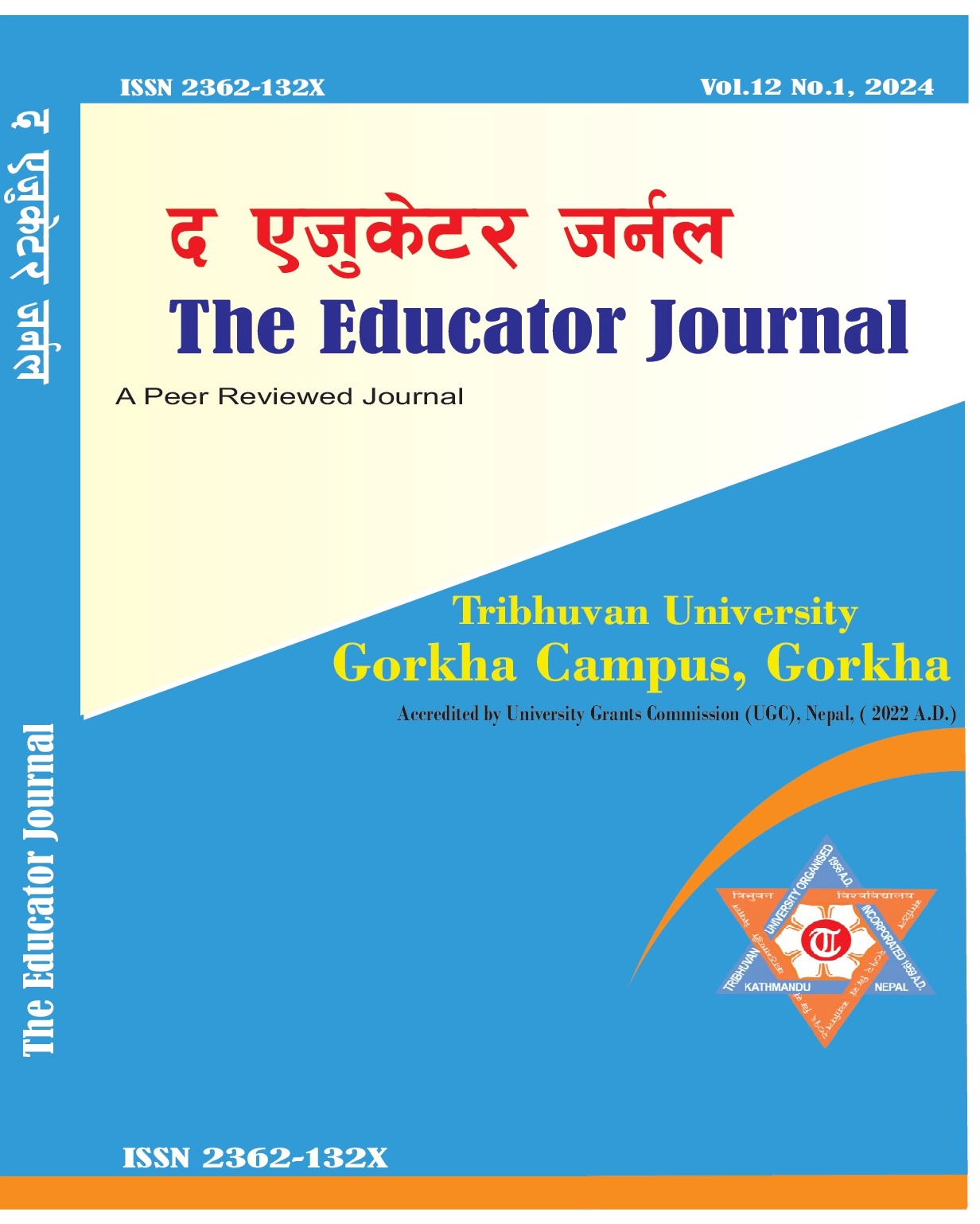Exploring Professional Development for Science Teachers in Educational Technology at FOE-TU
DOI:
https://doi.org/10.3126/tej.v12i1.64918Keywords:
Science education, Teachers, Professional development, Tribhuvan UniversityAbstract
This paper aims to provide an overview of opportunities of science education teachers’ professional development in Faculty of Education, Tribhuvan University (FOE-TU). In addition, it explores the the existing situation of science education teachers professional development, existing situation and readiness of teachers to teach at B.Ed. and M.Ed. levels in science education programmes. The study uses a mixed method (QUAN-qual) i.e., sequential explanatory research design. Survey questionnaire and in-depth interviews were taken to collect quantitative and qualitative data respectively. Census sampling is used for quantitative aspect and purposive sampling is used for the qualitative part of this study. SPSS version 20 was used to analyze the quantitative data whereas thematic and verbatim approach was used to analyze the qualitative data. It is found that only about one-third (26%) of teachers taken SPSS training and only one-sixth (13%) of them taken the training of Atlas-ti software to analyze the data. Similarly, science education teachers took training for endnote (41.6%), Microsoft Teams (94.44%), and Zoom (86.11%). Faculty of Eeducation does not conduct TPD training on time and when required. It is recommended that FOE-TU should provide training for science education teachers to run effective classes at M.Ed. and B.Ed. Levels in science education programmes in Nepal. It implies that in order to ensure effective TPD in science education programs, FOE-TU must prioritize and improve professional development opportunities for science education teachers.




